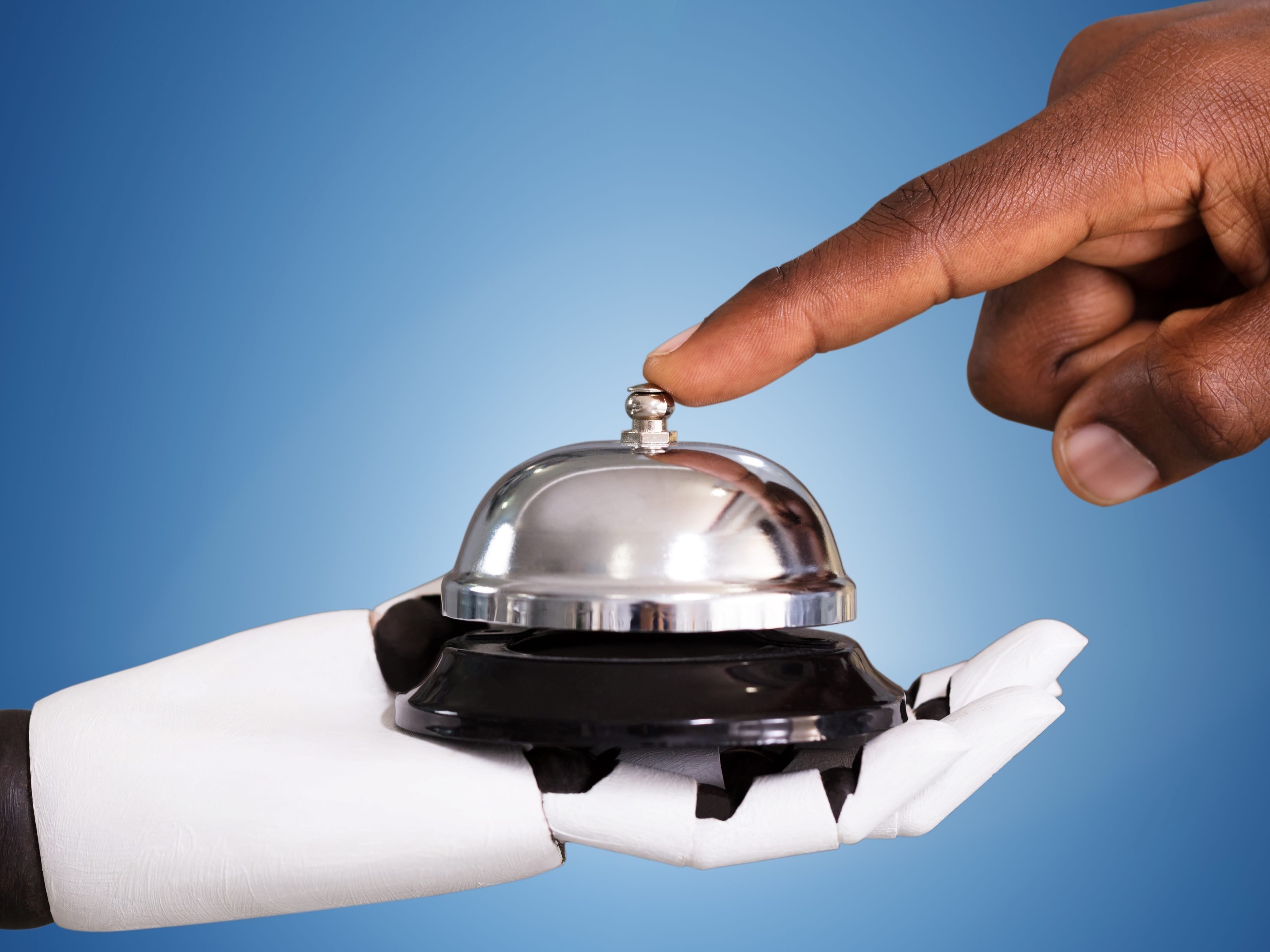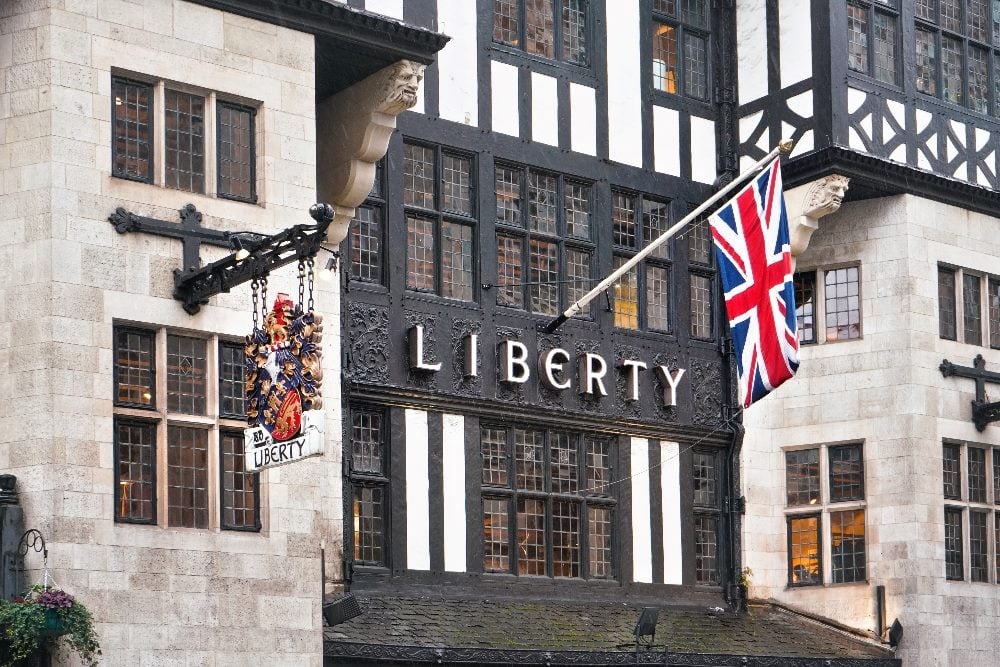The Gist
- AI integration. AI in customer experience is transforming retail, healthcare and travel by optimizing resources and improving results.
- Personalized marketing. Ulta Beauty's use of AI allowed tailored marketing campaigns, increasing sales from returning customers.
- Enhanced support. Liberty London and TGH Urgent Care utilized AI for efficient customer service, reducing response times and increasing satisfaction.
Customer experience (CX) teams are implementing artificial intelligence (AI) to create trackable results in various areas, including customer service, personalization and forecasting. Across sectors — such as retail, health care and travel — CX pros depend on AI-based automation to save time, optimize resources, and, in fact, improve the customer experience in measurable ways. Several of these companies offer details on their successful integration of AI in customer experience in this set of case studies:
1. AI in Automated Personalization Case: Ulta Beauty
Bolingbrook, Illinois-based Ulta Beauty wanted to use more personalization in its digital marketing to customers. However, the retailer’s data was in silos and “difficult to access and mobilize,” according to a case study. The siloed data hampered campaign design and execution, and data latency caused marketing leaders to miss personalization opportunities.
To drive customer personalization through marketing automation, Ulta looked to first consolidate its customer data, including its loyalty program, in-store credit card program, email list and SMS list.
Ulta worked with the Cary, North Carolina-based analytics software company SAS to create a “single environment” where the marketing team can access all of their customer insights for “agile decision-making and better return on investment” based on their data.
Using marketing automation and AI with SAS Customer Intelligence 360, Ulta personalized campaigns, including for the loyalty program Ultamate Rewards, and offered granular customer recommendations.
AI, for instance, was used for predictive models to optimize print marketing campaigns that “decreased marketing costs without reducing marketing effectiveness.”
“The two areas we’re really leaning into — AI and machine learning — are anchored in a recommendation engine,” says Kelly Mahoney, VP of member marketing for Ulta Beauty. “It's an algorithm that’s proprietary to Ulta Beauty and allows us to bridge the physical and digital worlds.
“Personalization is the key to unlocking our future success and to do this well means we need to apply data and decisioning alongside campaign activation. Today, we’re able to leverage analytics and our campaign activation-to-decision messages that reach our guests in almost real-time.”
Result:
-
Automated personalization helped 95% of sales come from returning customers
Related Article: Real Talk With AI and Digital Customer Experience Management
2. AI in Customer Service Case: Liberty London
The department store Liberty London needed to modernize its customer service function to cut out “repetitive work and wasted effort” and deliver a “premium” customer experience across multiple channels, according to a case study.
As online sales rose to almost 50% of total sales, the store wanted to give agents the latest digital tools and customer service data to analyze, optimize and improve the operation.
Liberty London worked with the San Francisco CX software company Zendesk to use AI to automatically classify and route customer support tickets to “the right team at the right time,” which helped the store manage busy customer service periods.
The Zendesk AI platform identified and labeled customer intent, sentiment and language to get issues routed and “solved as quickly as possible.” The team plans to also use the platform to route and assign backlog tickets to “remove bottlenecks across customer service operations.”
“Liberty is all about delivering a personal service,” says Ian Hunt, director of customer services at Liberty London. “I see AI enhancing that personal service, because now our customers will be interacting with a human who’s being put in front of them at the right time with the right information.”
“I'm seeing an exciting opportunity to streamline and be more efficient. That will allow our team to have more time to work on projects of importance to the business — be it driving revenue or new sales channels.”
Results:
-
11% decrease in ticket resolution time
-
73% decrease in first reply time
-
9% increase in customer satisfaction
Related Article: 5 AI Analytics Trends for CX Personalization
3. AI in an Omnichannel Customer Service Case: TGH Urgent Care
Tampa-based TGH Urgent Care powered by Fast Track needed help “dealing with a significant surge in patient calls” to the multi-location company, according to a case study. The urgent care provider’s customer service reps were “overwhelmed,” resulting in a call answer rate that was sometimes “20% of the inbound calls.”
TGH wanted to move from a call-dependent customer service operation to an omnichannel experience that connected patients to digital and helped the provider manage customer service volume.
TGH Urgent Care worked with the New York-based conversational AI platform LivePerson and its Voice bot to offer an AI-based engagement option for callers, deflecting hundreds of daily calls to SMS conversations. When patients were on hold, they were also given the option to switch to messaging — “if they changed their mind while waiting.”
For after-hours inquiries, including weekends, TGH Urgent Care used an FAQ AI chatbot.
“The speed to value was impressive, and it’s a great way to integrate technology with live team members,” says Chelsea Lydic, director of marketing and business development at TGH Urgent Care powered by Fast Track. “We’ve reduced some of the heavy lifting from our team members.
“It has helped relax our frontline clinic staff and improved the customer service reps’ efficiency and responsiveness to patient needs.”
Results:
-
40% reduction in number of incoming calls
-
Increase to 80% call answer rate
4. AI in Predictive Analytics Case: CAA Club Group
Thornhill, Ontario-based CAA Club Group (CCG) wanted to save time and labor creating forecasts and generate predictions — such as roadside assistance call volumes — that covered the auto club’s “full scope,” according to a case study.
CCG’s data science team sought to “optimize resource allocation” for its membership through automated forecasts on member assistance and CCG staffing, working with “hundreds of millions of rows” of data from multiple sources.
CCG worked with the Ramat Gan, Israel-based predictive analytics company Pecan AI to support its service forecasting development and implementation.
For instance, the roadside product data science team at CCG used over 30 models developed through the platform by their lead data scientist.
The team used the AI predictive analytics platform to generate dozens of models that predict member call volume by interval, region and type of service — helping CCG build schedules for its driver network.
“To experiment with models, all I have to do is check or uncheck specific variables I want to include in the modeling process,” says Debasmita Biswal, lead data scientist, CCG. “If I need to bring in more data and build more data sets and connections, I can do that easily."
Results:
-
30% reduction in time generating service forecasts
-
100s of service models for team experiments, improvements, updates
-
100% of facilities tied to service scheduling
5. AI in a High-Volume Customer Support Case: IndiGo
The Gurugram, India-based airline IndiGo looked to set up a more “efficient” customer support operation to handle high query volume 24/7 as well as “reduce support costs,” according to a case study.
The airline wanted to automate repetitive queries, give complex queries to agents and engage customers with awareness campaigns, including on loyalty programs.
IndiGo worked with the San Mateo, California-based conversational AI company Yellow.AI to implement automated 24/7 customer support with a dynamic AI chatbot.
The AI chatbot offered self-serve options for the customers through WhatsApp and the airline’s website, automating over 35 use cases with over 300 customer journeys.
IndiGo also used automation for customer campaigns that share airline information and promote discounts via push notifications.
“We can design conversational AI flows within minutes, while reducing training data-related costs and efforts,” says Abir Lavasa, senior manager of digital, IndiGo.
Lavasa says the AI chatbot provided customers with “a quick and hassle-free experience for a plethora of services, like web check-in, booking management, flight information, and more, on their preferred digital channels.”
Results:
-
87% average customer satisfaction score
-
400,000 opt-ins for WhatsApp campaigns
-
High volume of 42 million messages exchanged in a quarter


